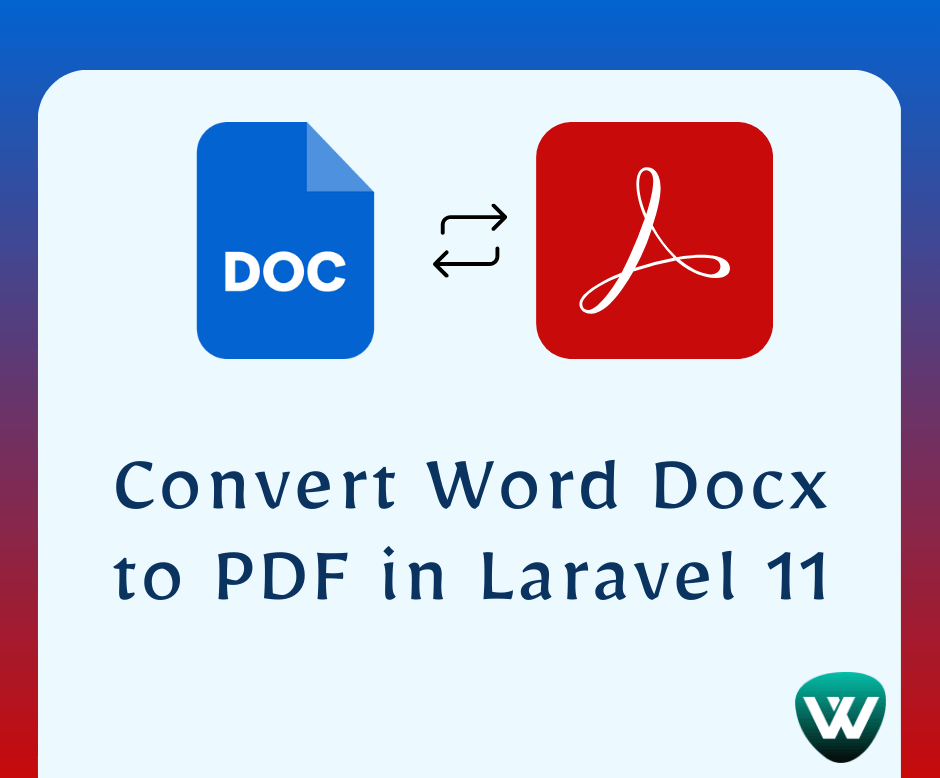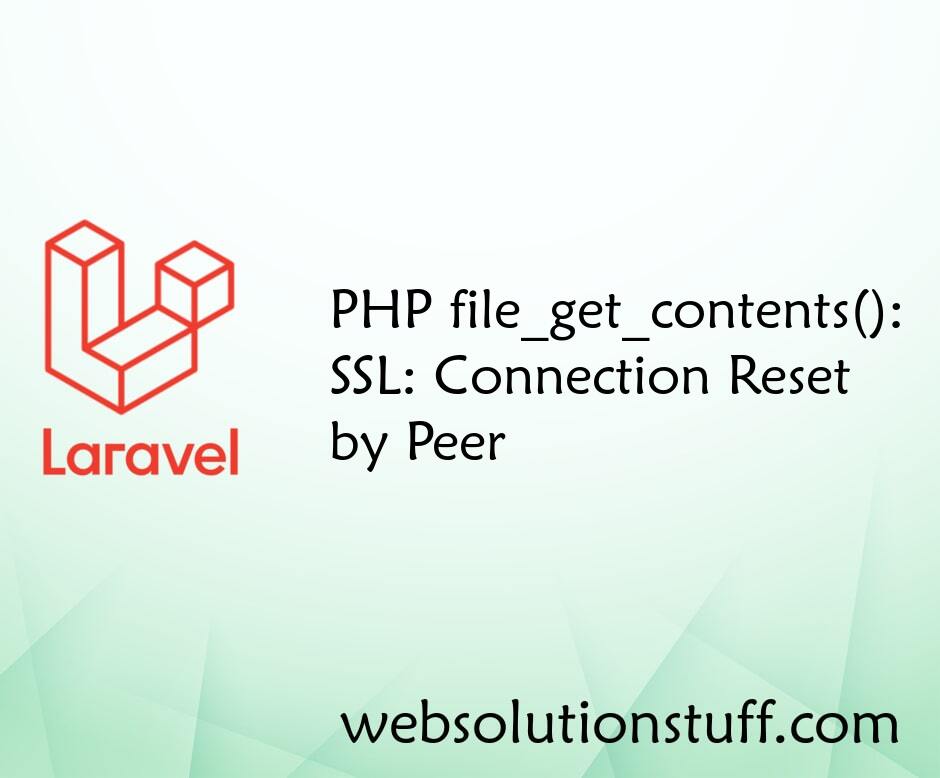Laravel: 10 Steps to Becoming a Laravel Expert
Websolutionstuff | May-26-2023 | Categories : Laravel PHP
In this article, we will see 10 steps to becoming a laravel expert. Here, we will learn about how to become a laravel expert. And also see laravel tricks and tips for becoming an expert. Becoming a Laravel expert requires dedication, practice, and continuous learning. Below, I'll outline ten steps that can help you on your journey to becoming proficient in Laravel.
Laravel is a popular PHP framework that is widely used for web application development. It is easy to learn and use, and provides a variety of features that make it an ideal choice for developing complex web applications. If you want to become a Laravel expert, here are ten steps to follow:

-
I learned the basics of PHP: Since Laravel is a PHP framework, I made sure to establish a strong foundation in PHP. I familiarized myself with PHP syntax, data types, functions, classes, and object-oriented programming (OOP) concepts.
-
I understood MVC architecture: Laravel follows the Model-View-Controller (MVC) pattern, so I took the time to understand how MVC works and how it separates business logic (model), user interface (view), and application flow control (controller).
-
I studied Laravel documentation: Laravel has comprehensive documentation available on its official website. I read through the documentation thoroughly to understand the framework's features, components, and best practices. It covered everything from installation to advanced topics like database migrations, routing, caching, and authentication.
-
I built small projects: To gain practical experience, I started building small projects using Laravel. I practiced implementing CRUD operations, form handling, validation, and database interactions. This hands-on experience helped me understand Laravel's conventions, syntax, and coding patterns.
-
I explored the Laravel ecosystem: Laravel has a vibrant ecosystem with numerous packages and libraries. I familiarized myself with popular packages like Laravel Horizon, Laravel Scout, Laravel Passport, and Laravel Telescope. I learned how these packages can enhance the application development process.
-
I dived into the Blade templating engine: Laravel uses the Blade templating engine to separate presentation logic from application logic. I learned the Blade syntax and features such as template inheritance, conditionals, loops, and partials. Mastering Blade enabled me to create reusable and maintainable views.
-
I studied Laravel database querying: Laravel provides a powerful ORM called Eloquent. I learned how to define and work with models, perform database queries, define relationships between models, and leverage Eloquent's query builder for complex queries.
-
I understood Laravel routing and middleware: Routing is fundamental in any web application, so I delved into Laravel's routing system. I explored route definitions, route parameters, route groups, and named routes. Additionally, I grasped the concept of middleware and how it can handle request filtering, authentication, and authorization.
-
I practiced testing and debugging: Testing is crucial for Laravel development. I familiarized myself with Laravel's testing framework and wrote unit tests and feature tests for my applications. I also learned to use debugging tools like Laravel Telescope and Xdebug to troubleshoot issues and optimize performance.
-
I engaged with the Laravel community: To accelerate my learning and growth, I joined the Laravel community. I participated in forums, discussion boards, and social media groups. I interacted with other developers, asked questions, and contributed to open-source projects. The Laravel community is friendly and supportive, and engaging with it provided valuable opportunities for learning and development.
Strong Knowledge of Laravel Fundamentals: I possess a solid understanding of the core concepts of Laravel, including routing, controllers, views, models, and migrations. I am well-versed in the directory structure and configuration of Laravel applications.
Proficiency in Laravel Eloquent ORM: I am skilled in utilizing Laravel's elegant and powerful ORM, Eloquent. I can effectively define models, establish relationships, and perform database queries using Eloquent. Additionally, I am well-versed in advanced Eloquent features such as eager loading, accessors, mutators, and query scopes.
Blade Templating: I am highly proficient in using Blade, Laravel's templating engine, to create dynamic and reusable views. I leverage Blade's features, including template inheritance, control structures, and includes, to develop clean and maintainable templates.
Advanced Routing and Middleware: Leveraging Laravel's routing system, I can handle route parameters, named routes, route groups, and middleware. I am capable of implementing complex routing patterns and applying middleware for authentication, authorization, and request filtering.
Authentication and Authorization: I have extensive experience implementing secure user authentication, password resets, and role-based authorization using Laravel's authentication and authorization system. I am familiar with concepts like guards, providers, and policies within Laravel's authentication system.
API Development with Laravel: I possess expertise in developing RESTful APIs using Laravel's routing, request handling, and response formatting capabilities. I am knowledgeable about API versioning, resourceful controllers, and API rate limiting.
Testing and Debugging: Testing is an integral part of Laravel development, and I am skilled in writing unit tests, feature tests, and integration tests using Laravel's testing framework. Additionally, I am proficient in utilizing debugging tools like Laravel Telescope and Xdebug to troubleshoot issues and optimize performance.
Package Integration and Third-Party Libraries: I have experience integrating and working with various Laravel packages and third-party libraries. I am adept at incorporating popular Laravel packages like Horizon, Scout, Passport, and Telescope to enhance development efficiency and add additional functionality.
Performance Optimization: I prioritize performance optimization in Laravel applications, employing techniques such as caching, database query optimization, eager loading, and optimizing asset delivery to ensure optimal performance.
You might also like:
- Read Also: How To Validate International Phone Number Using jQuery
- Read Also: Laravel 10 Apexcharts Bar Chart Example
- Read Also: Laravel 10 AJAX CRUD Operations Example
- Read Also: Laravel 10 CRUD Operation Step By Step
Recommended Post
Featured Post

How to Convert Word Docx to PD...
Hello, laravel web developers! In this article, we'll see how to convert Word doc to PDF in laravel 11. In laravel 1...
Jul-01-2024

How to Install Node JS and NPM...
Hey fellow Ubuntu enthusiasts! 🐧✨ If you're looking to step into the awesome world of Node.js and npm for your web d...
Jan-12-2024

PHP - file_get_contents() SSL...
Hey there! So, you're working with PHP and trying to fetch content from an HTTPS URL using the file_get_contents() f...
Mar-01-2024

How To Add Toastr Notification...
In this article, we will see how to add toastr notification in laravel 10. Here, we will learn about toastr notification...
Mar-06-2023